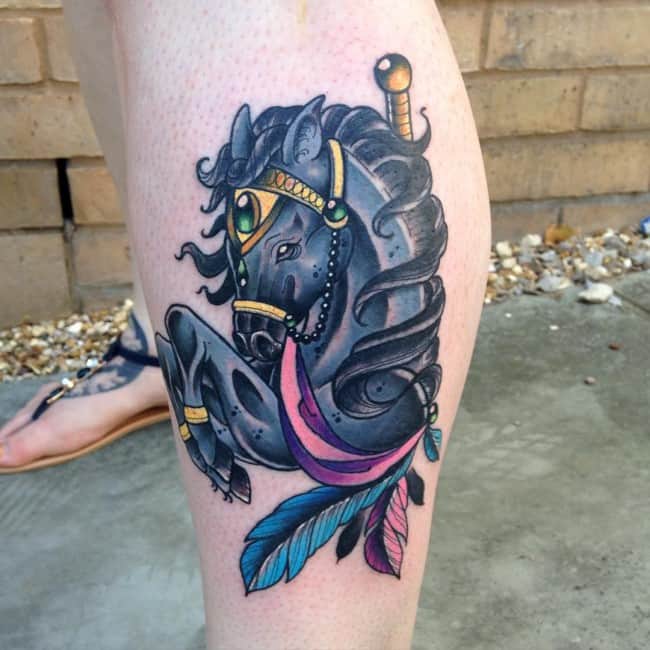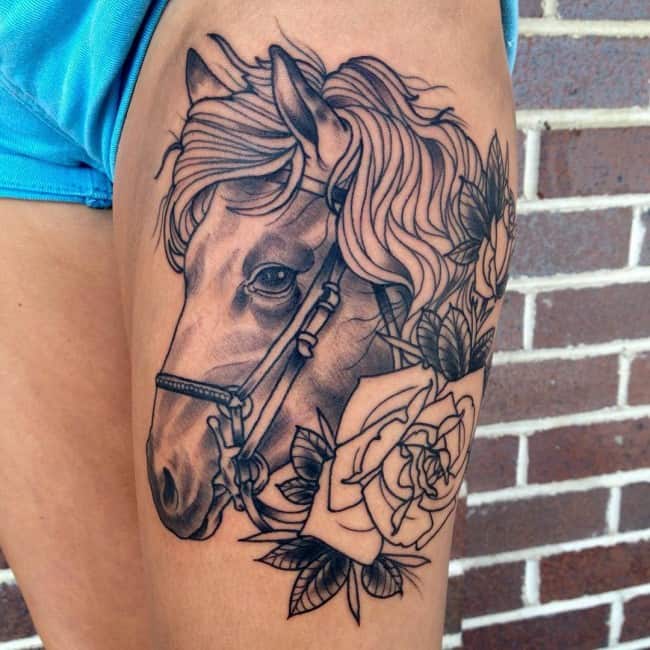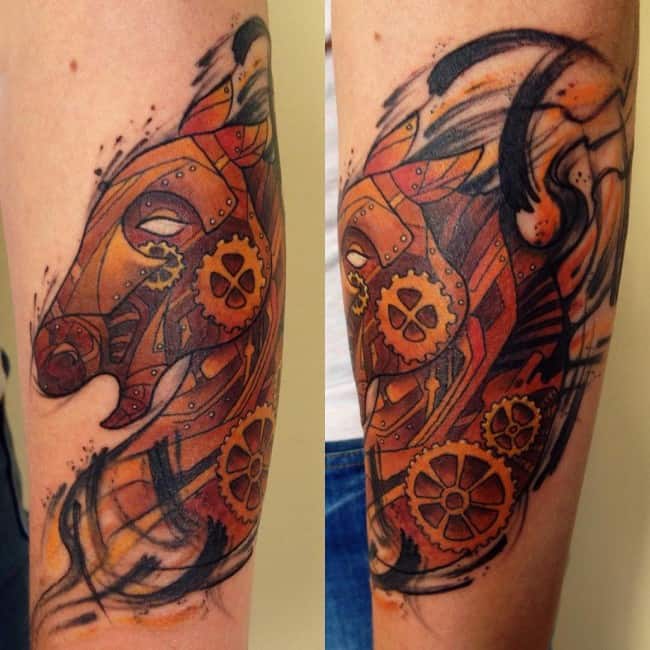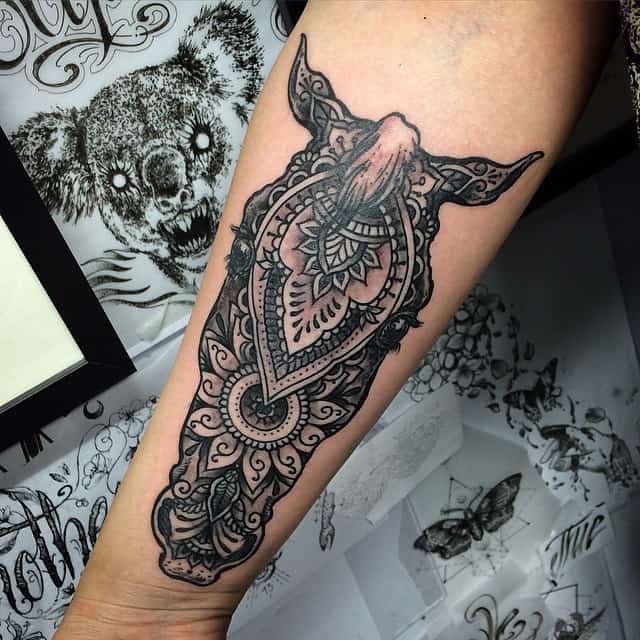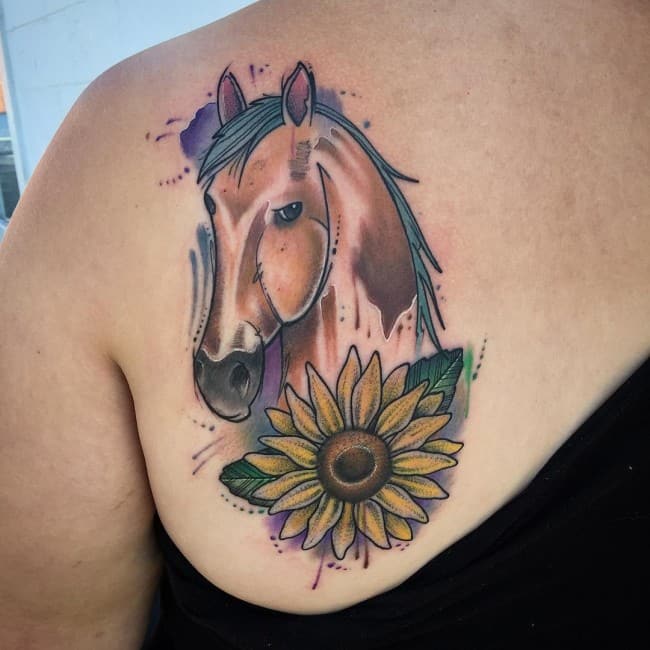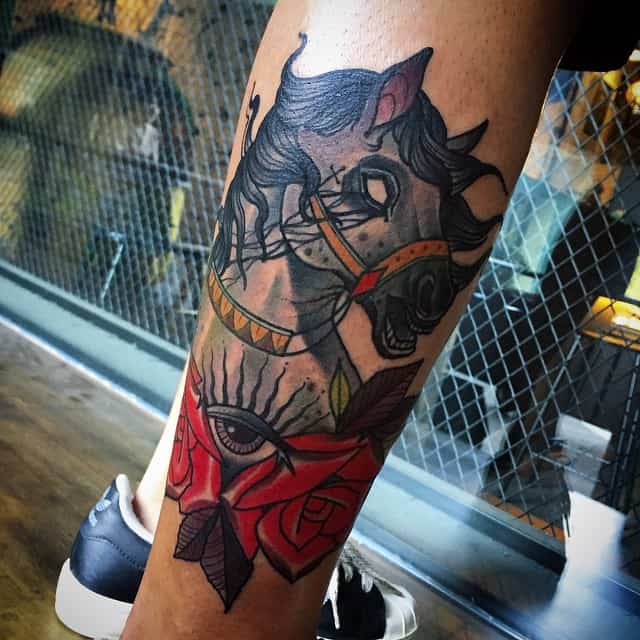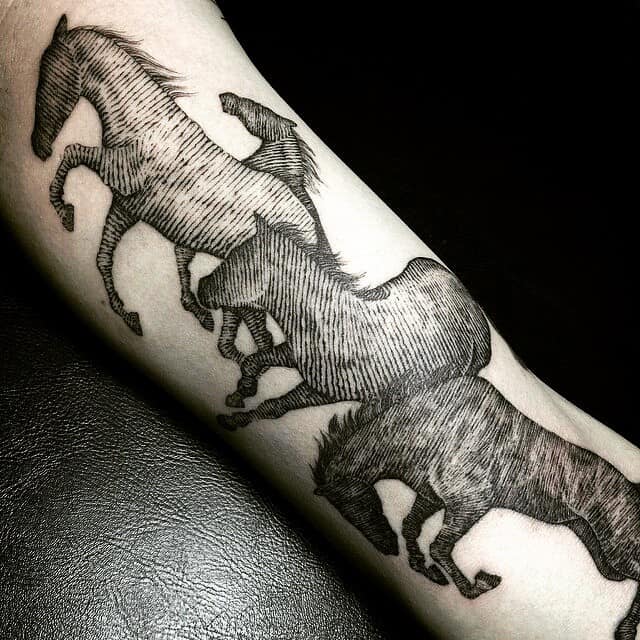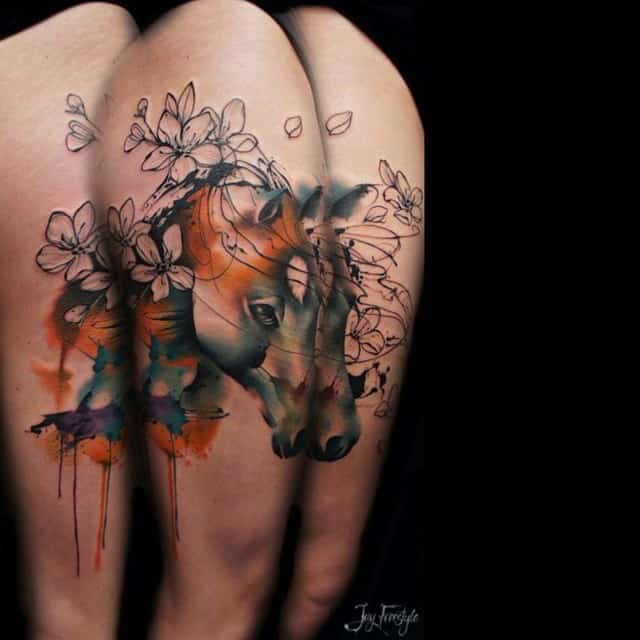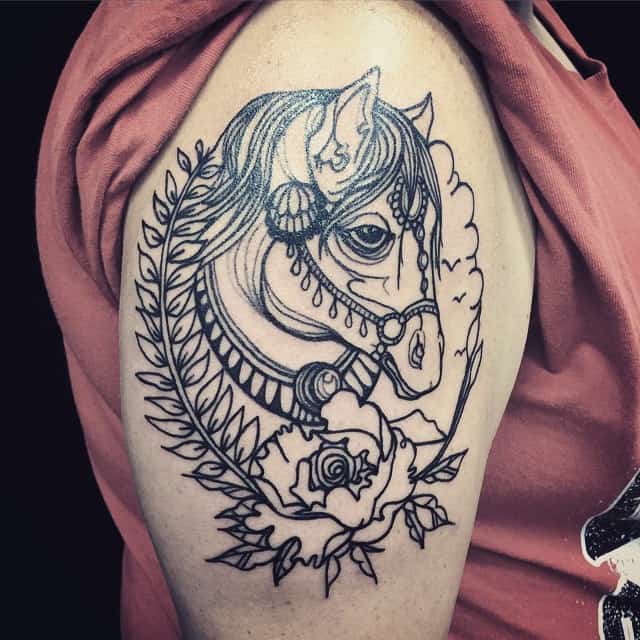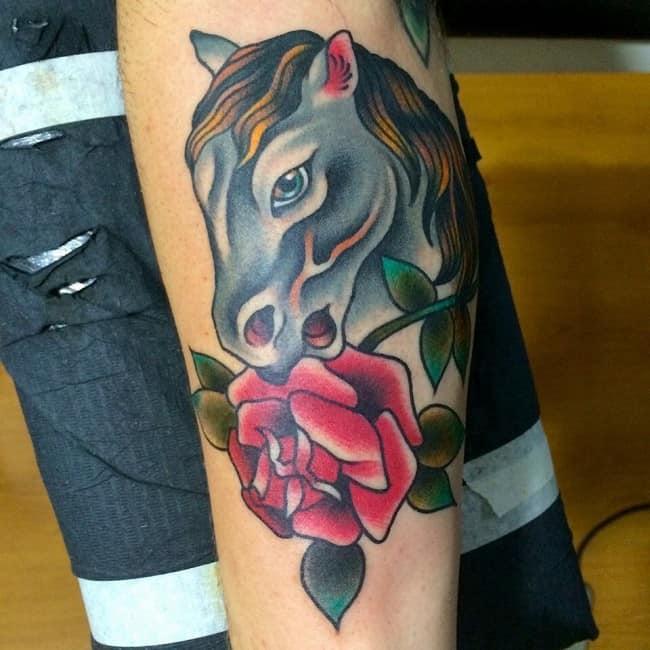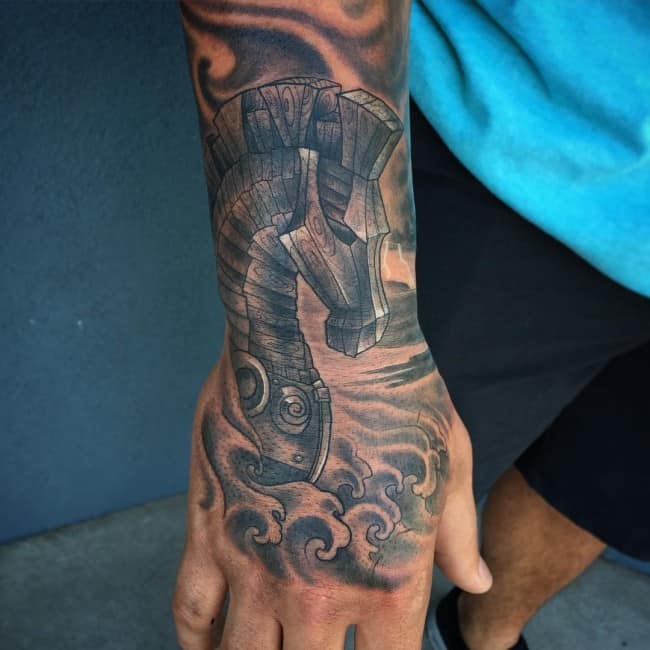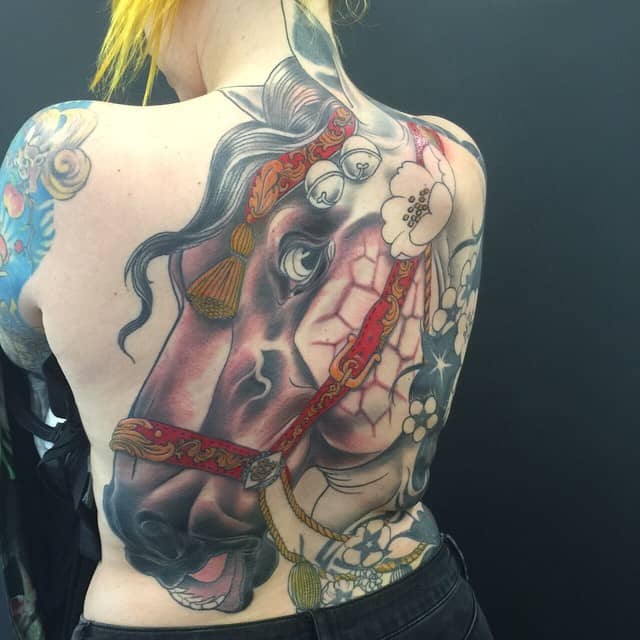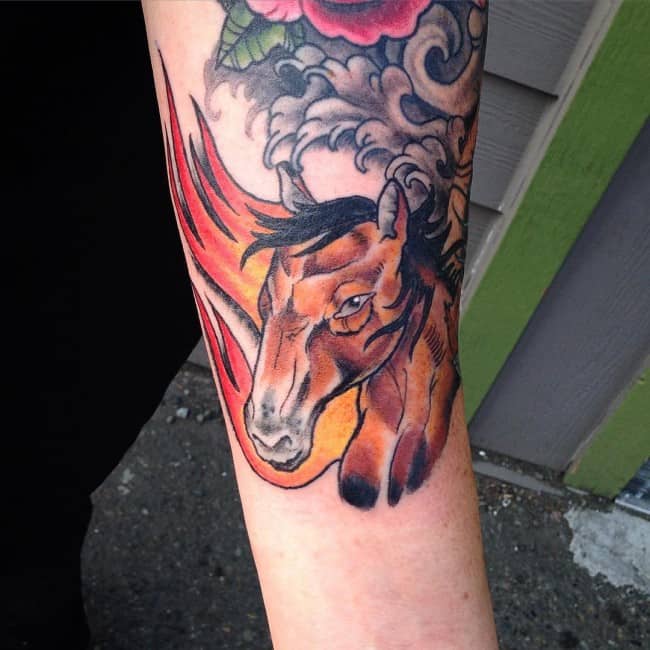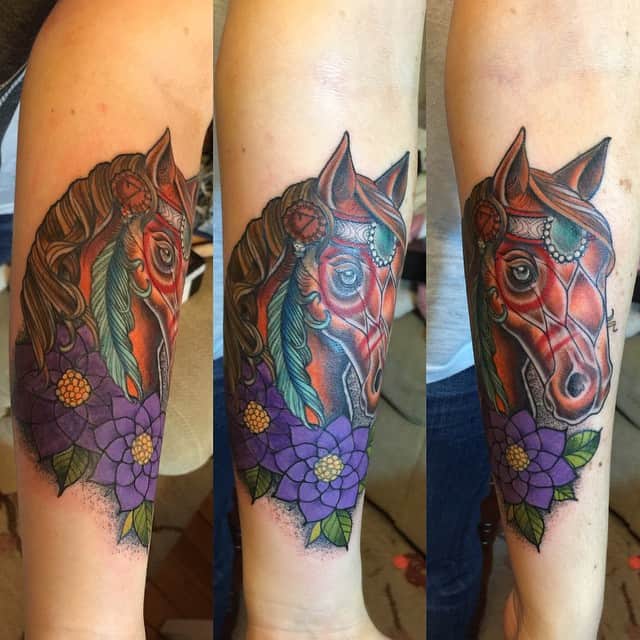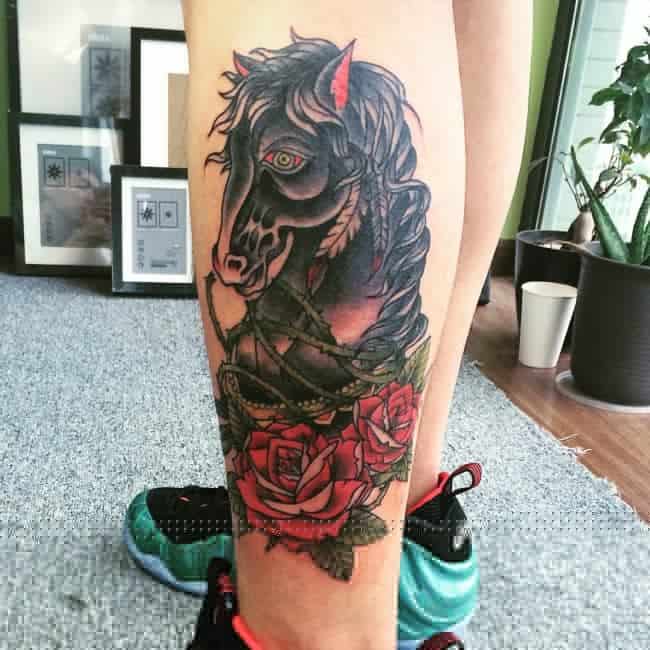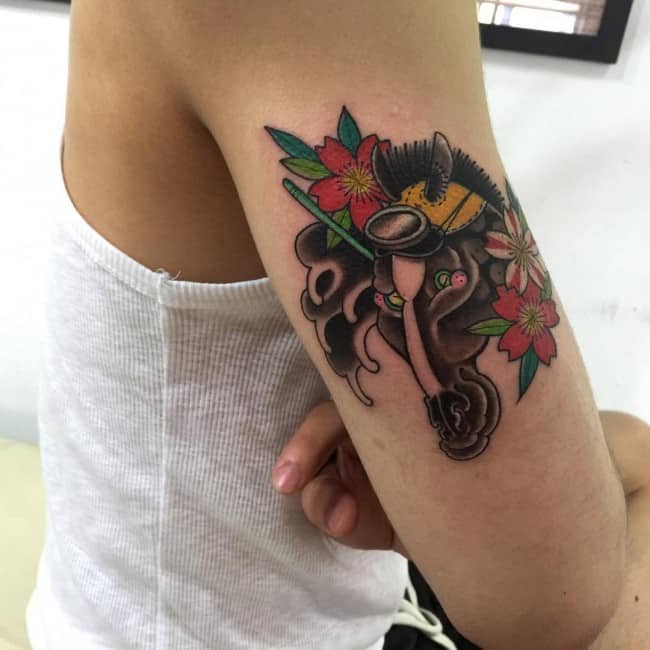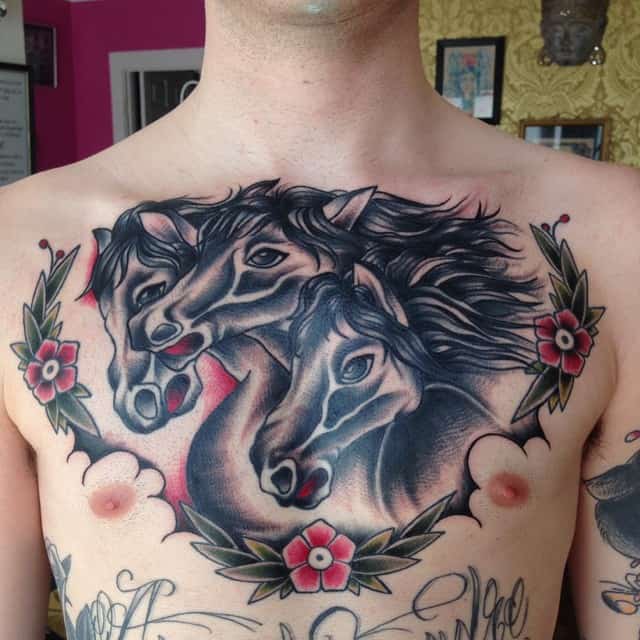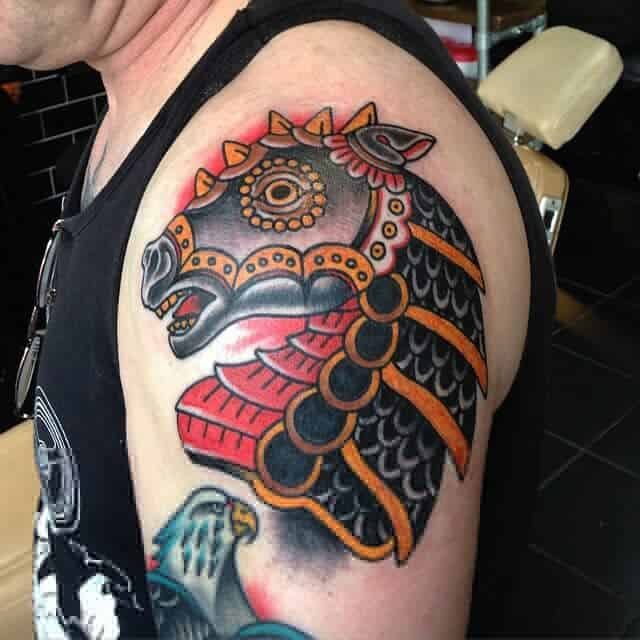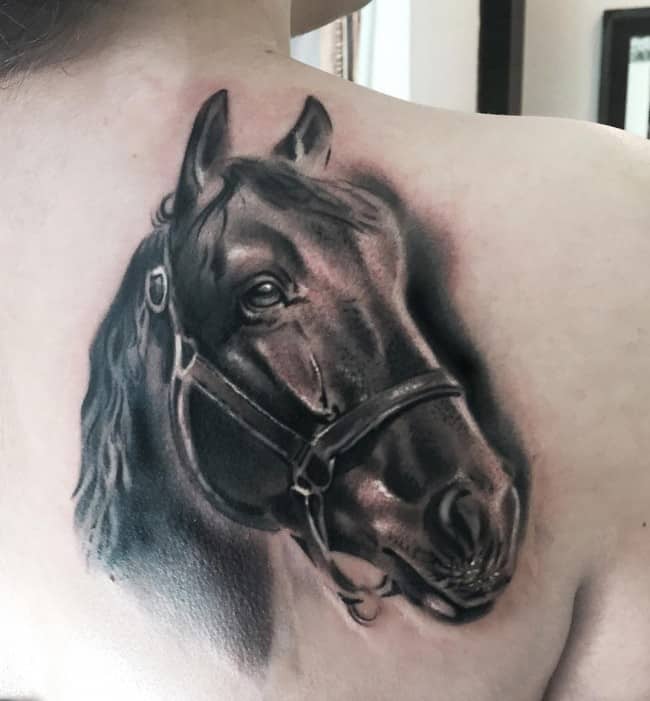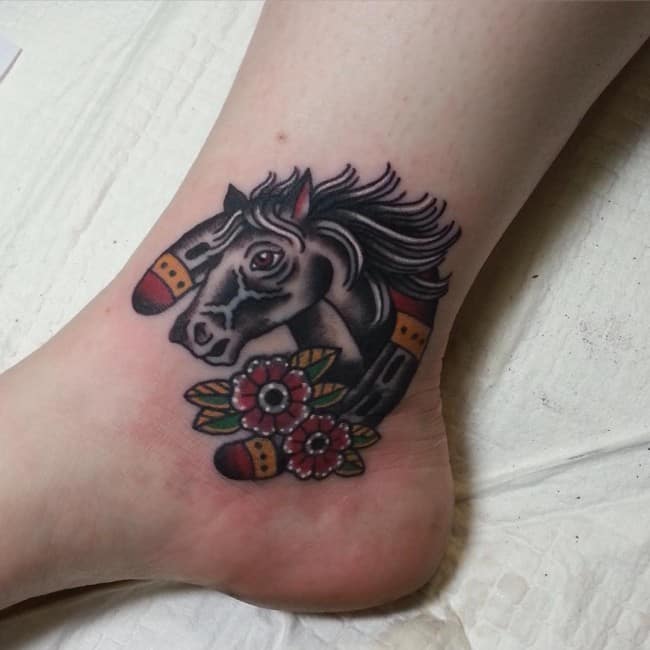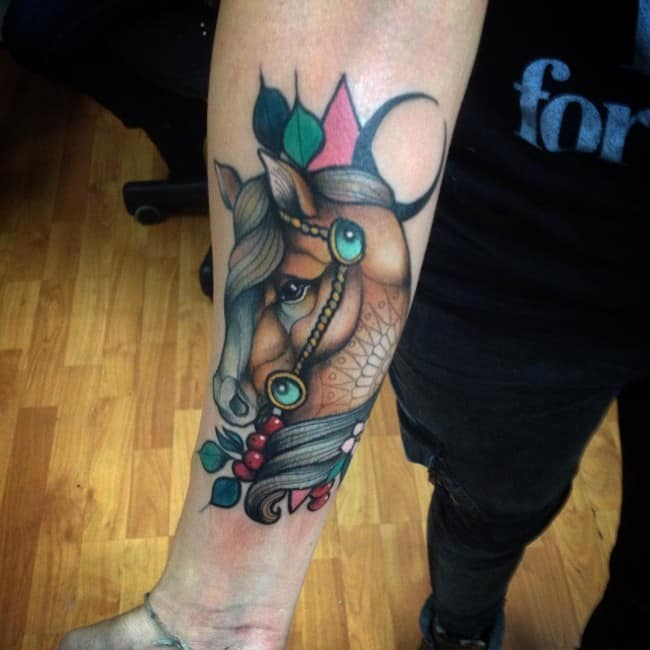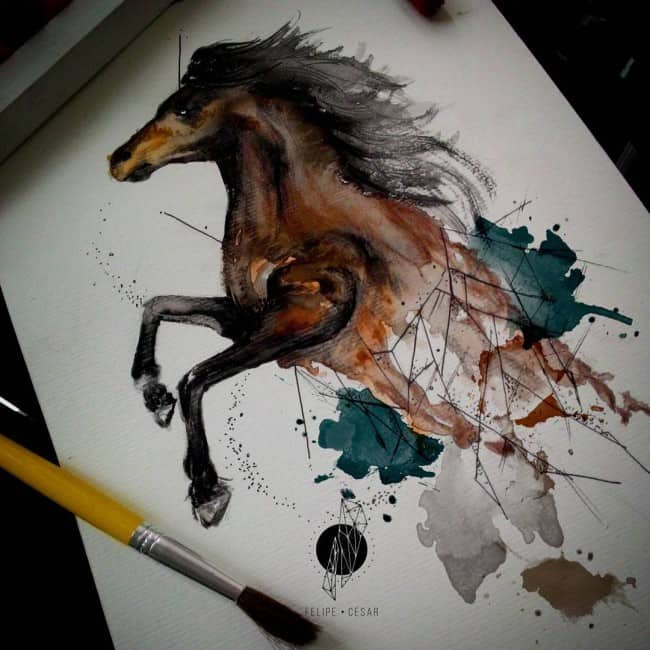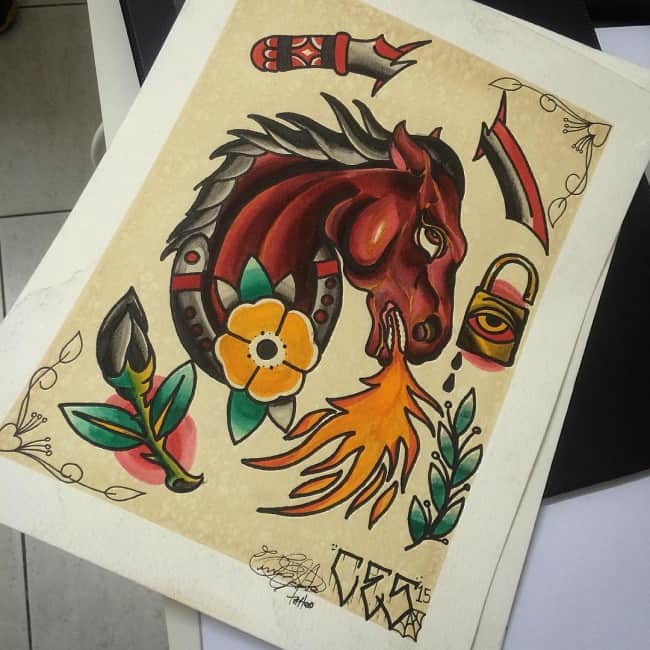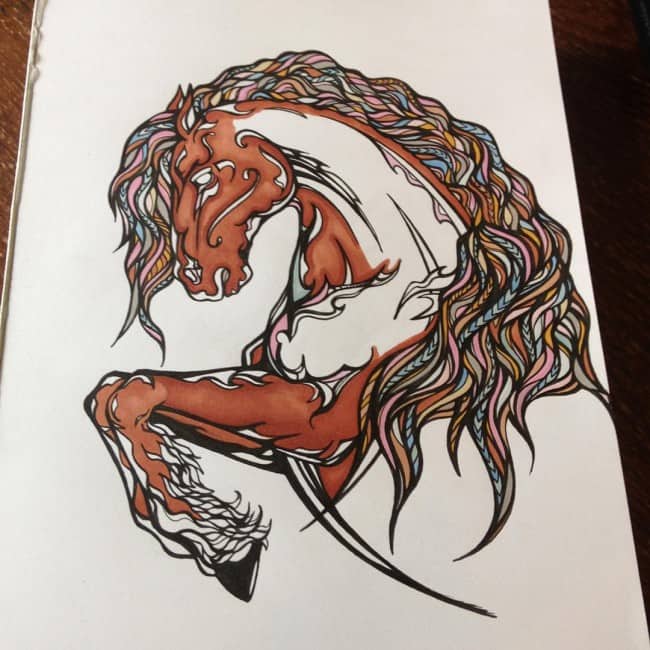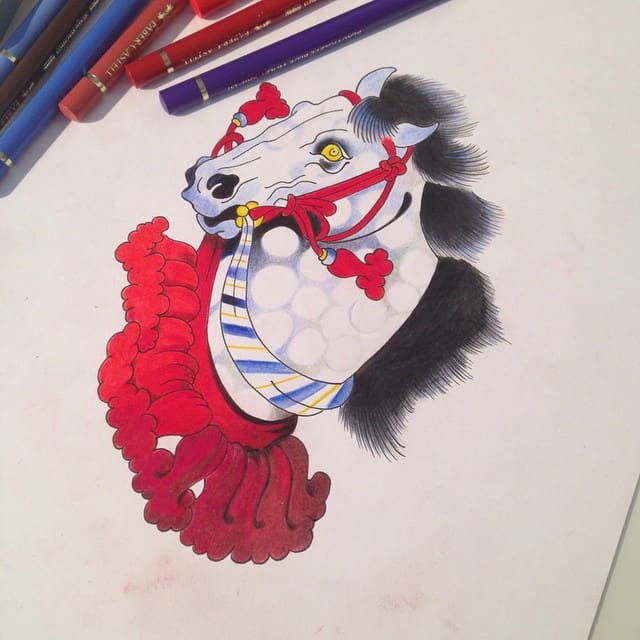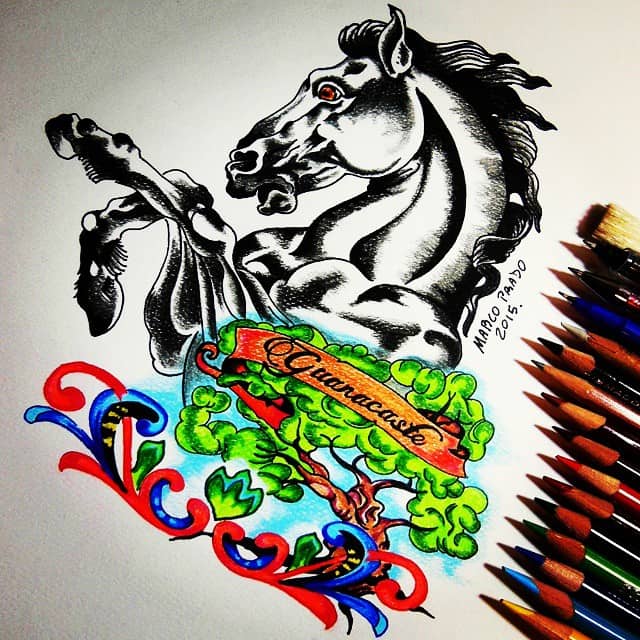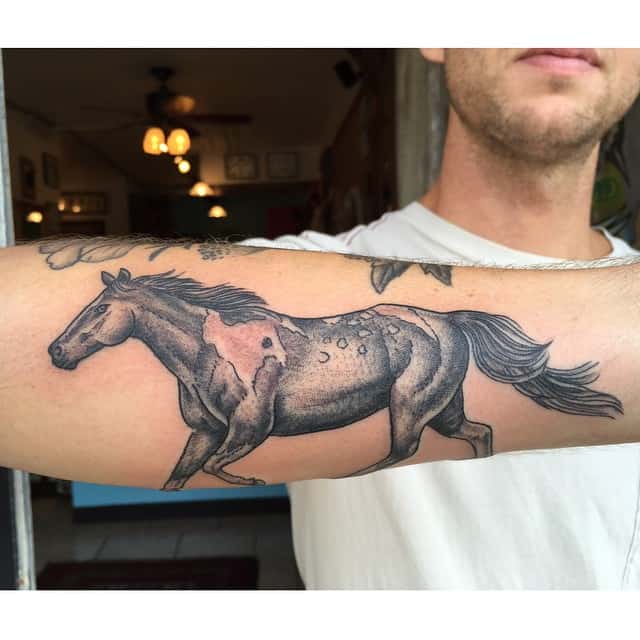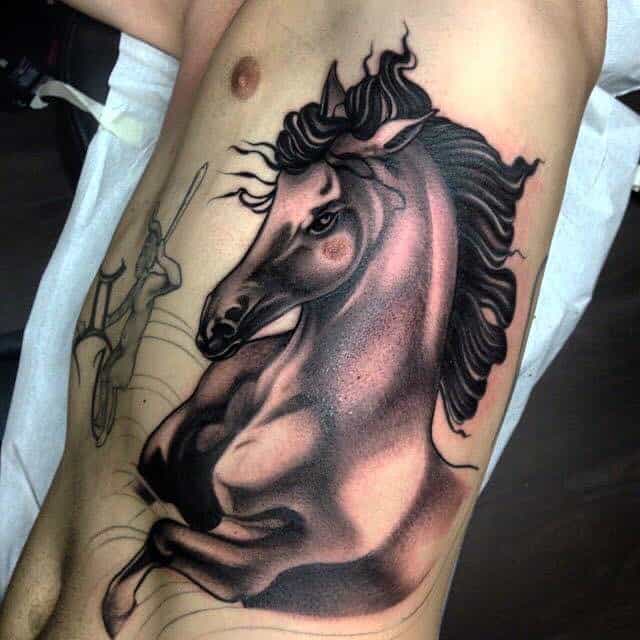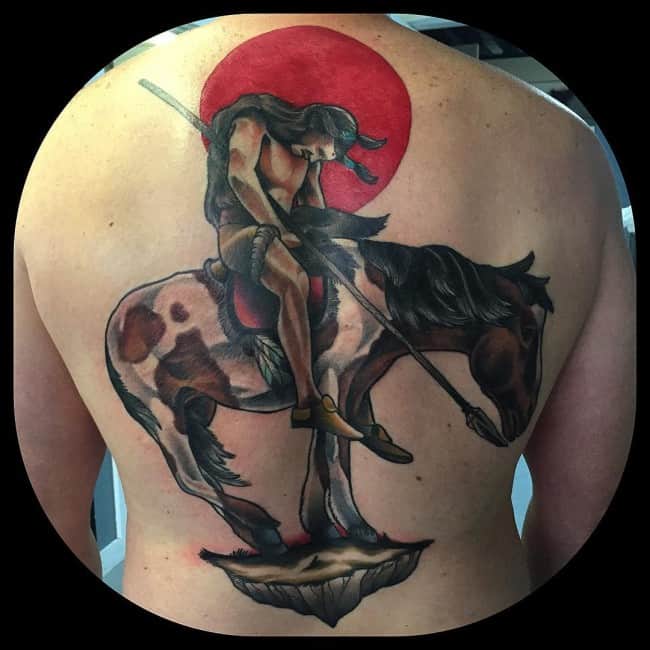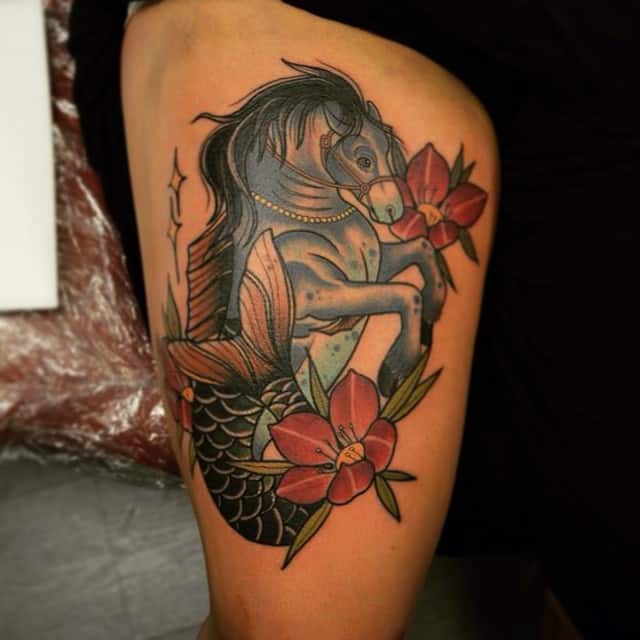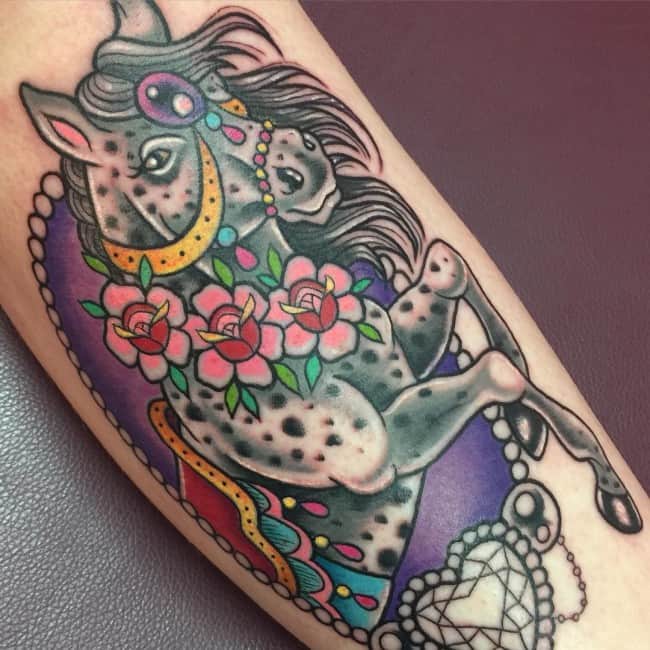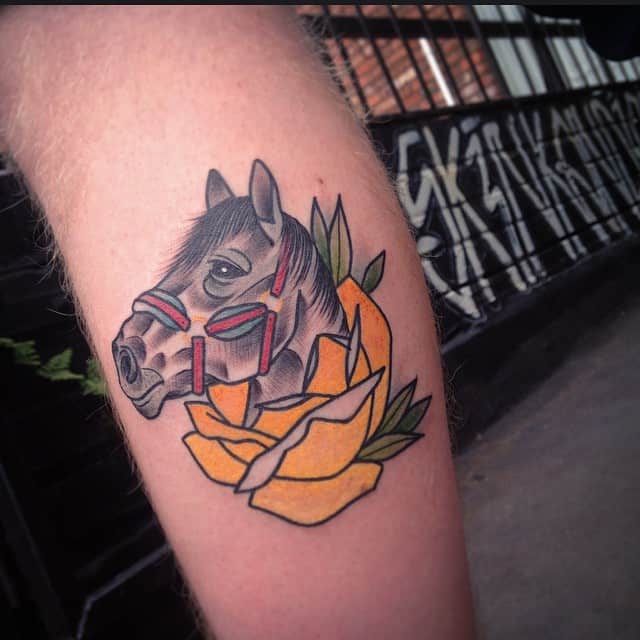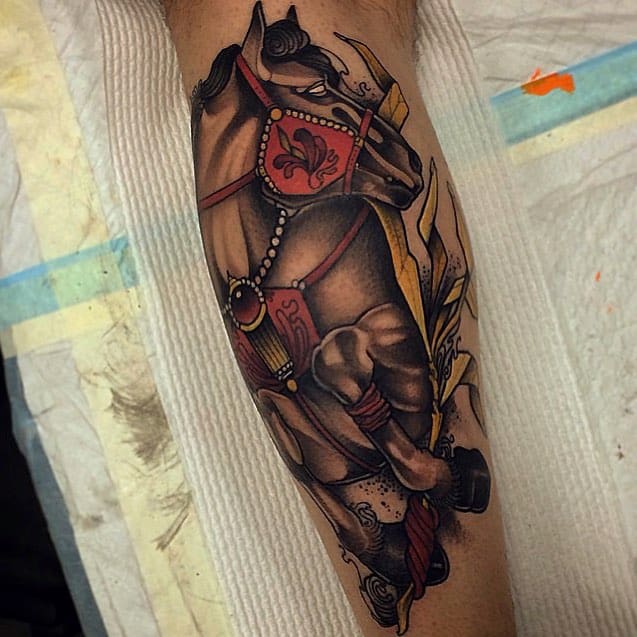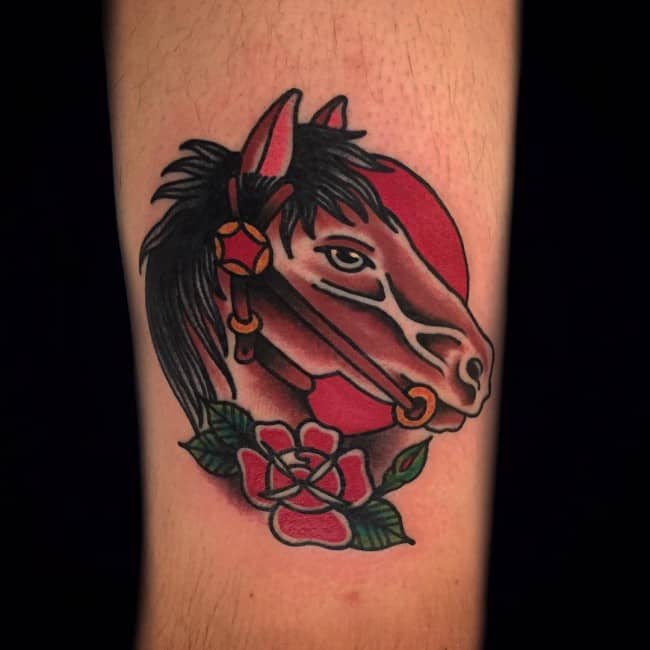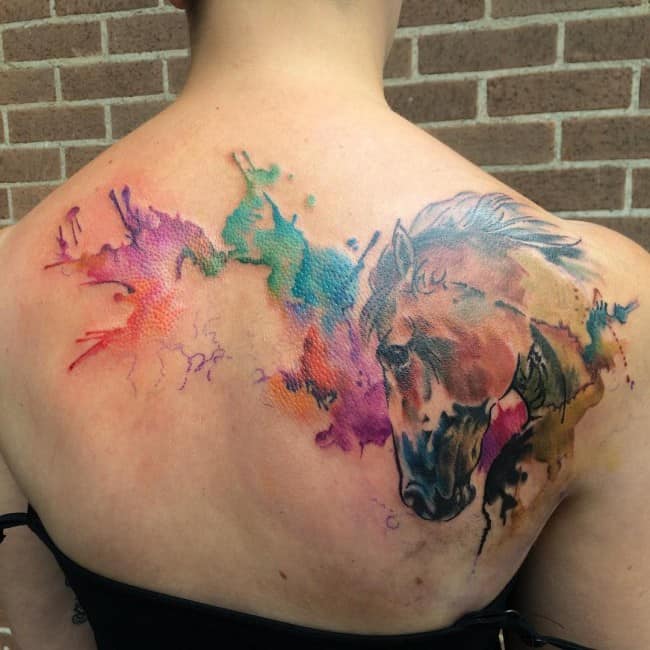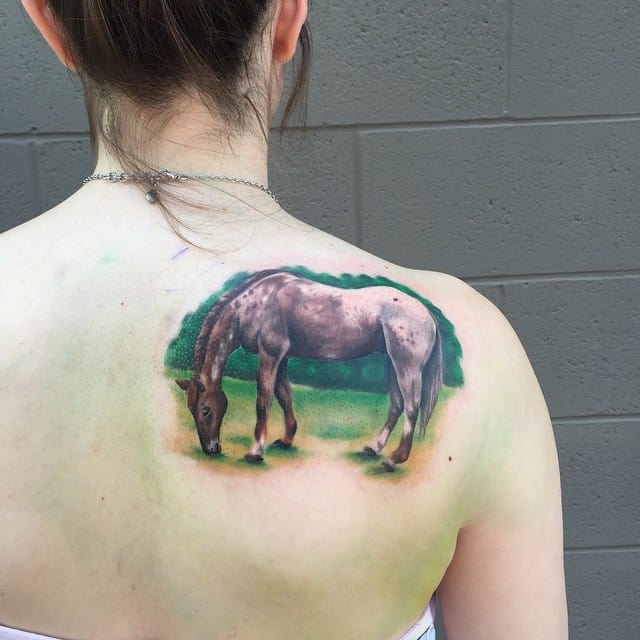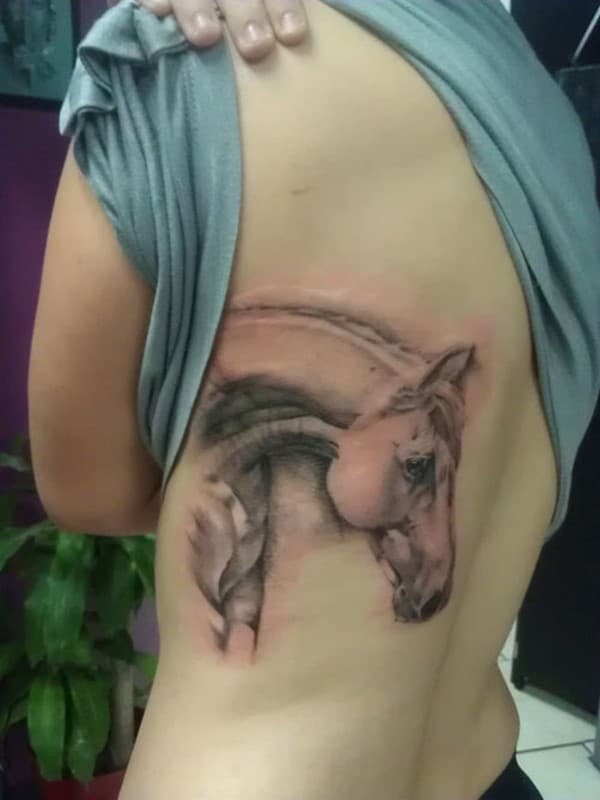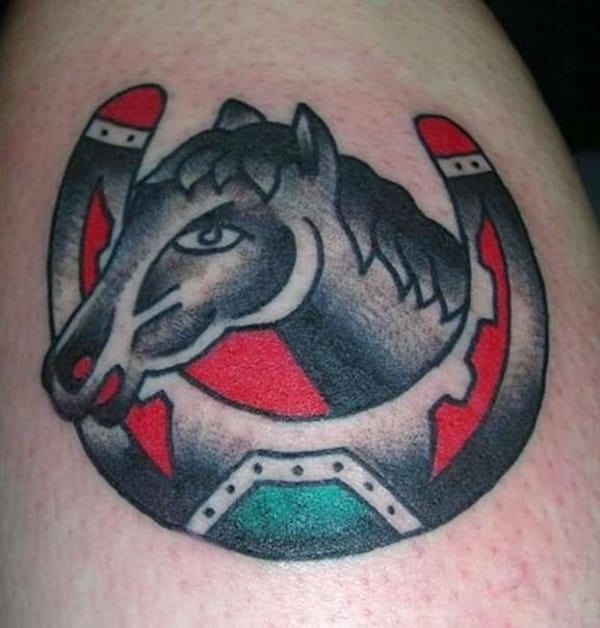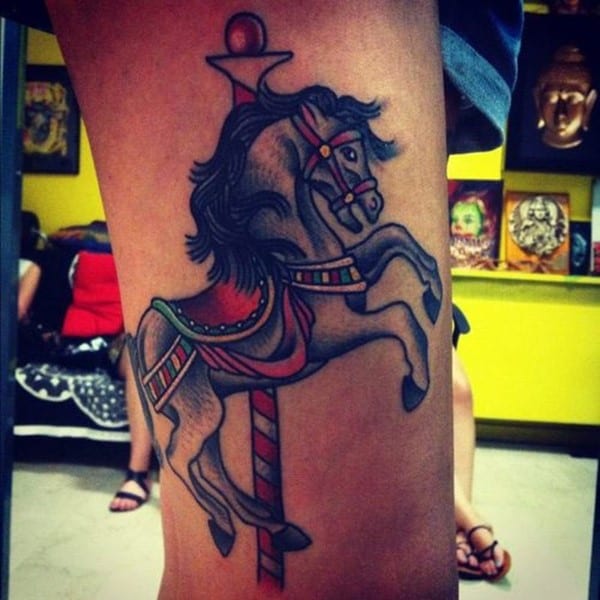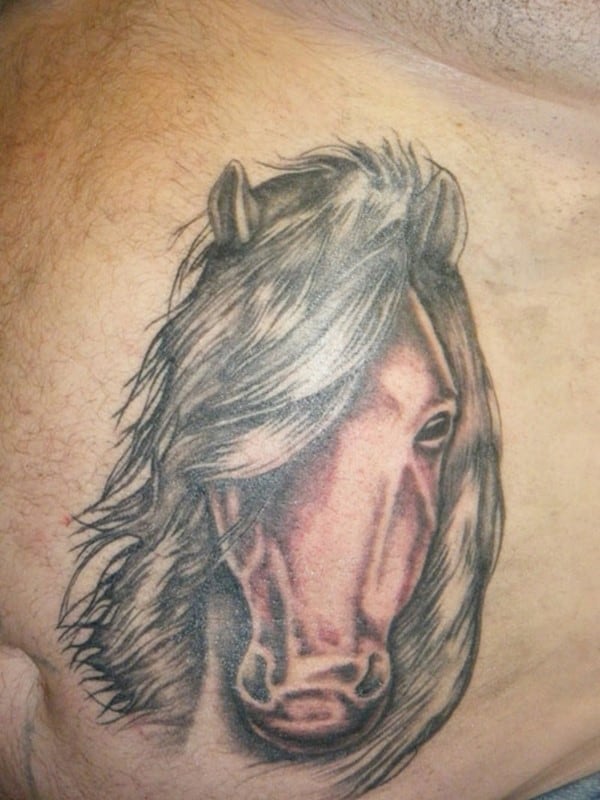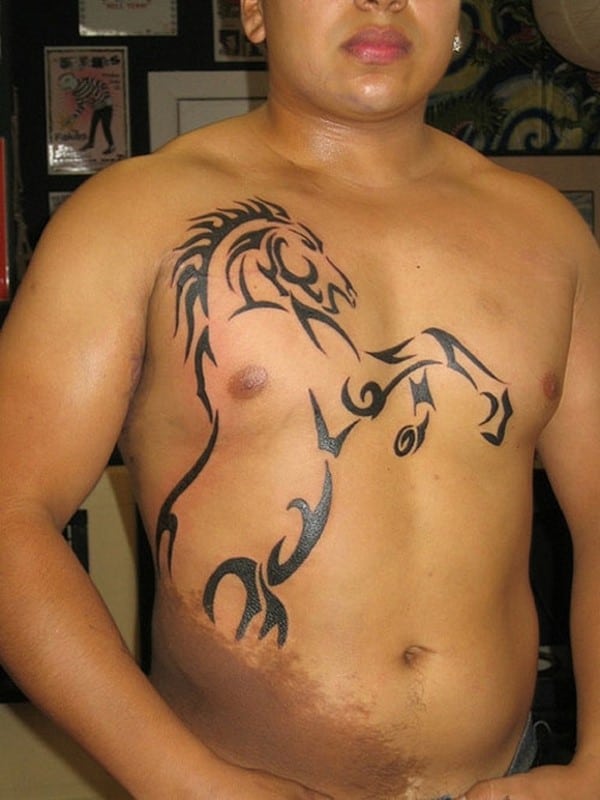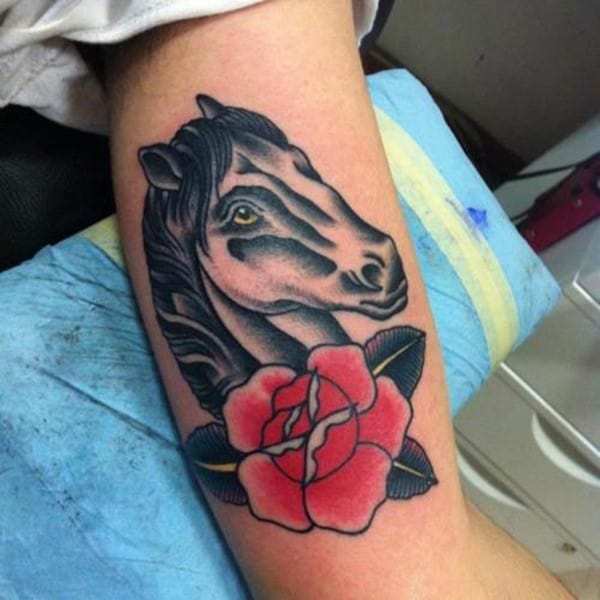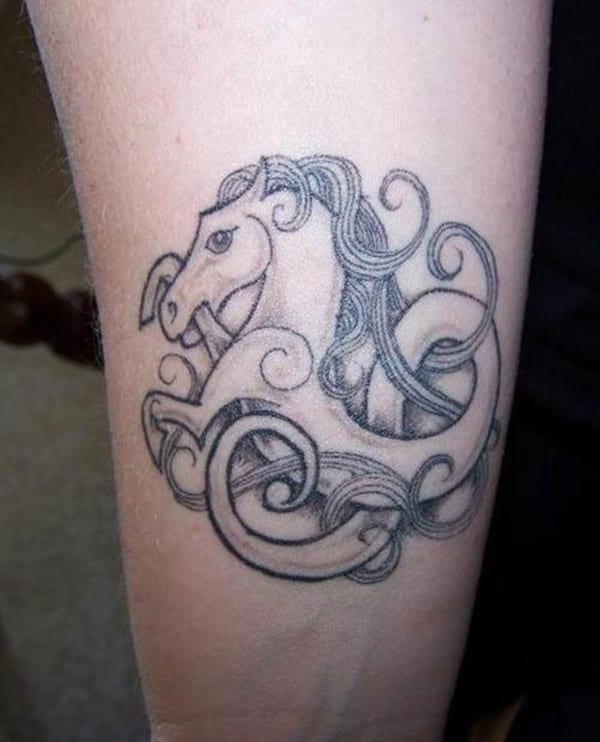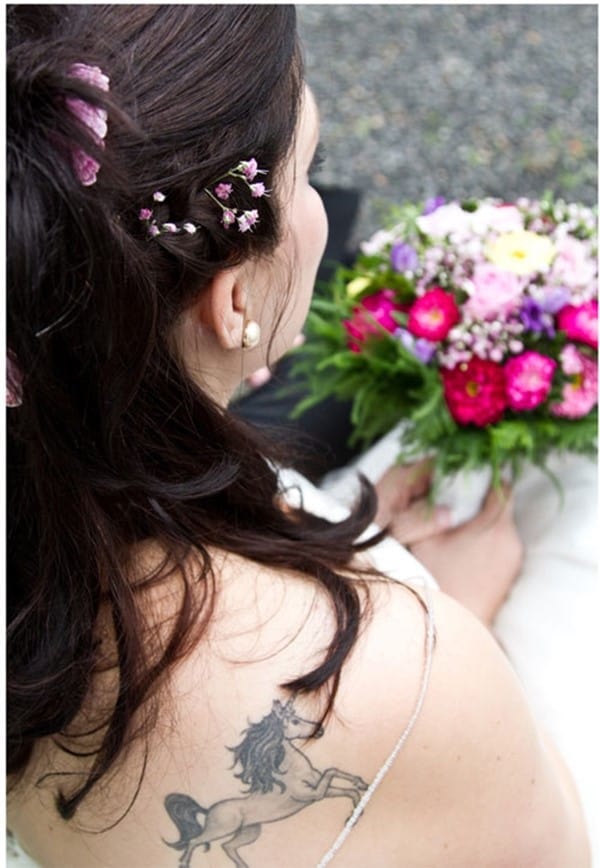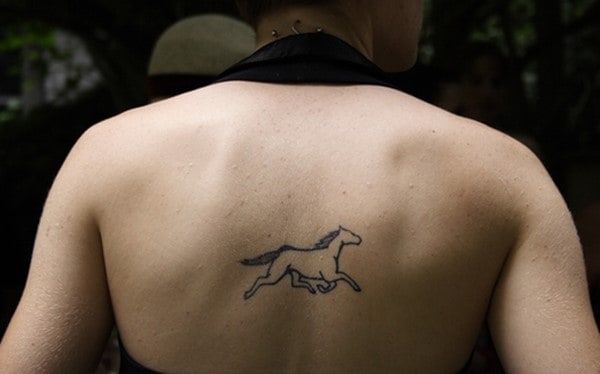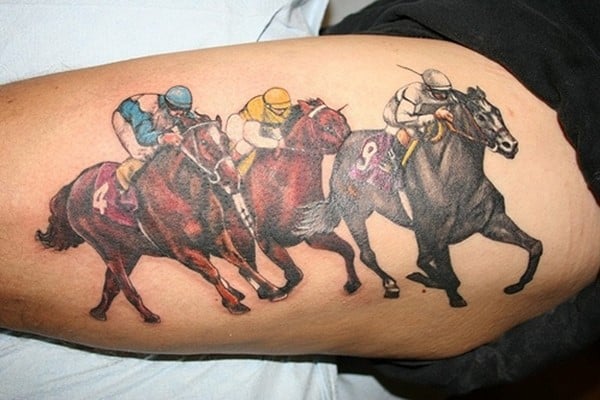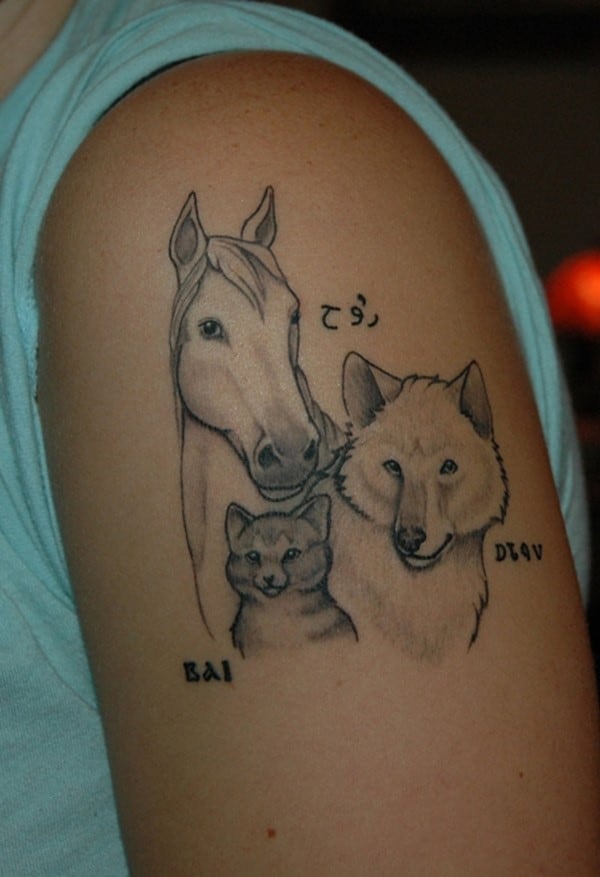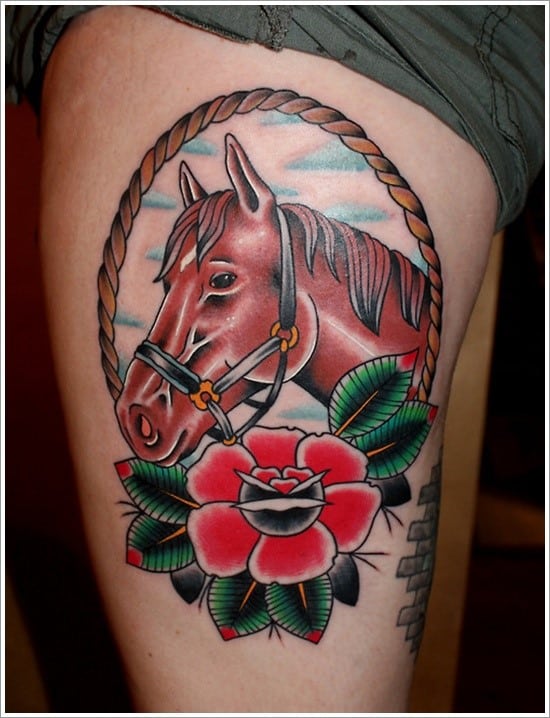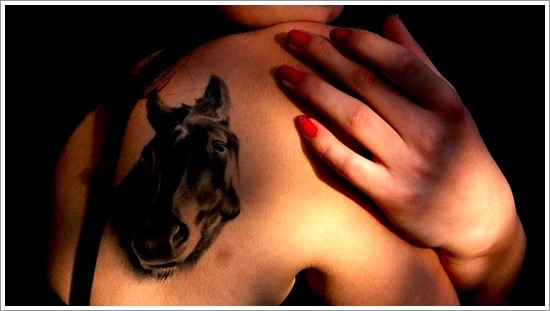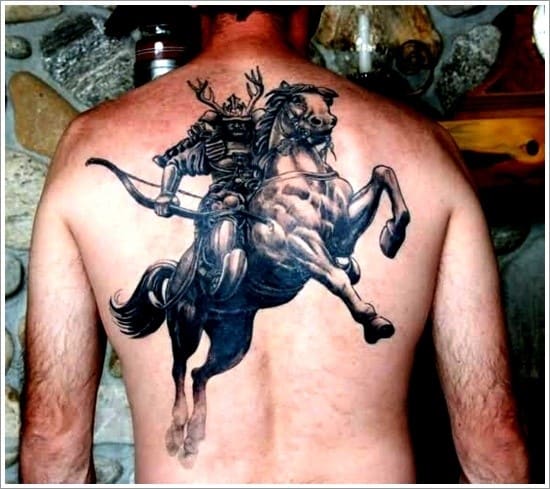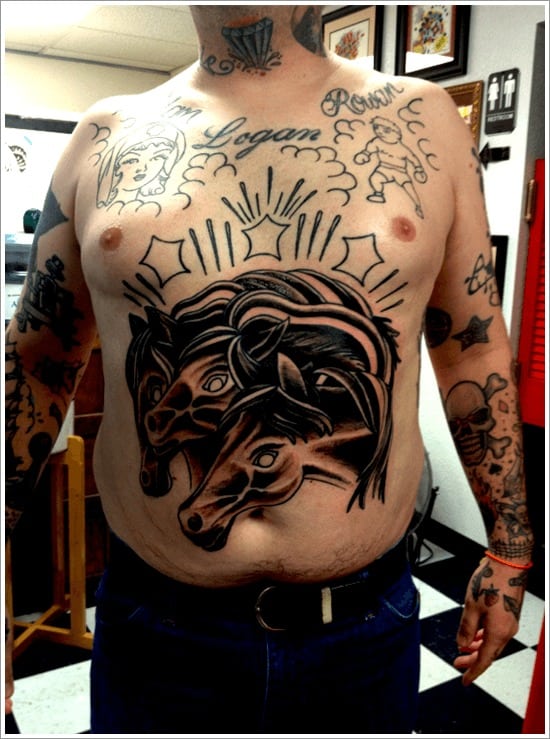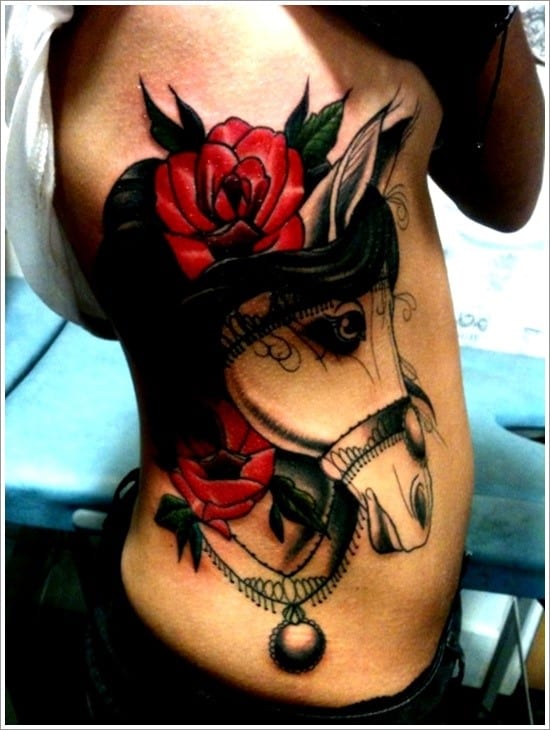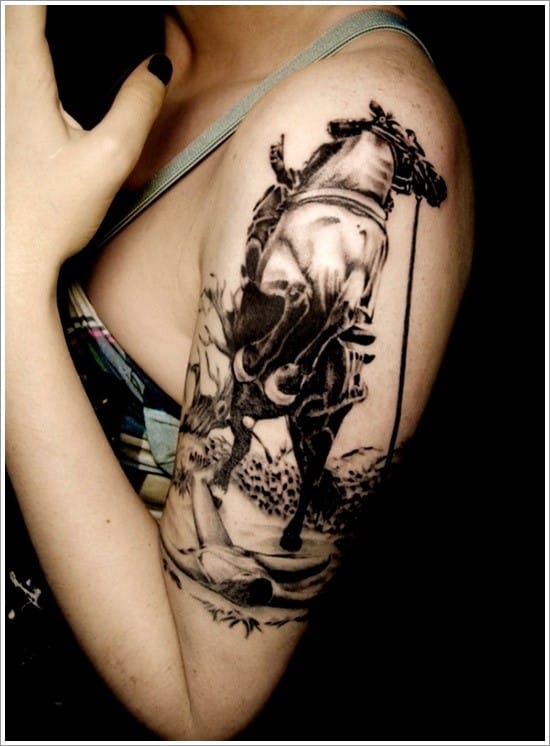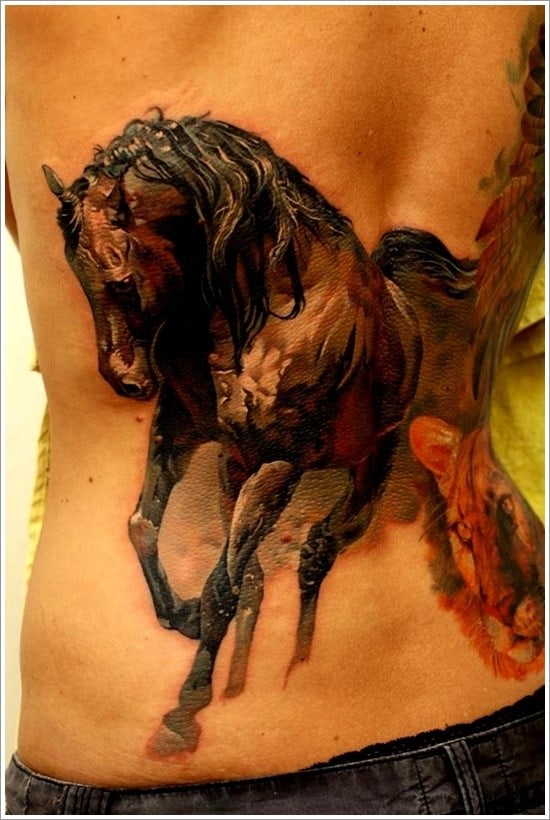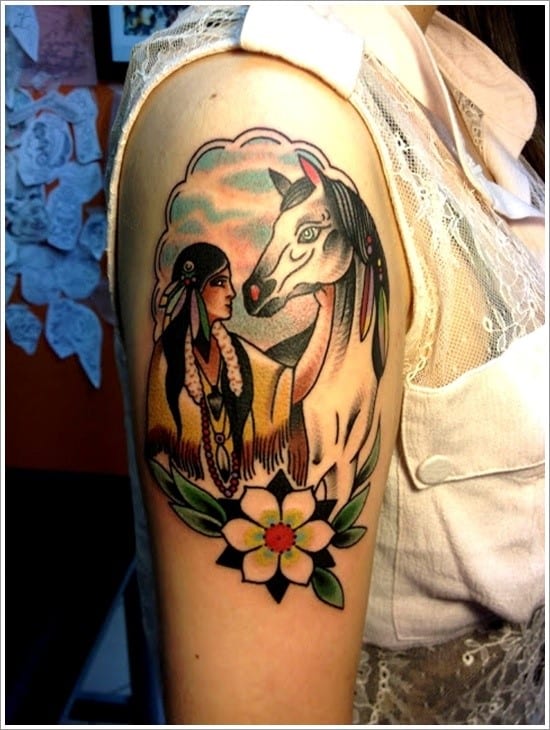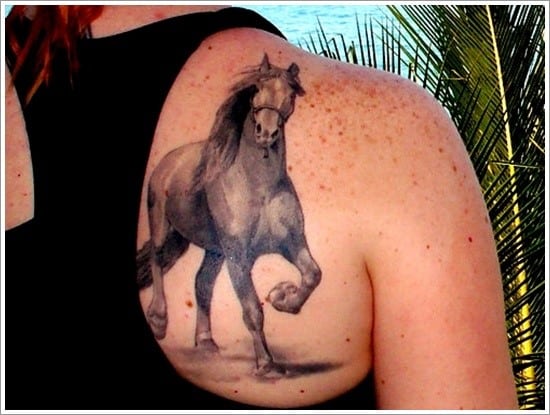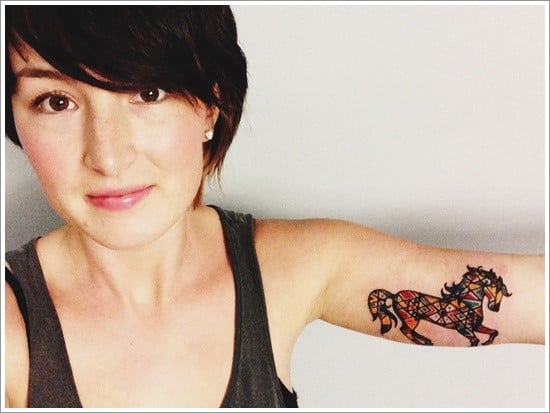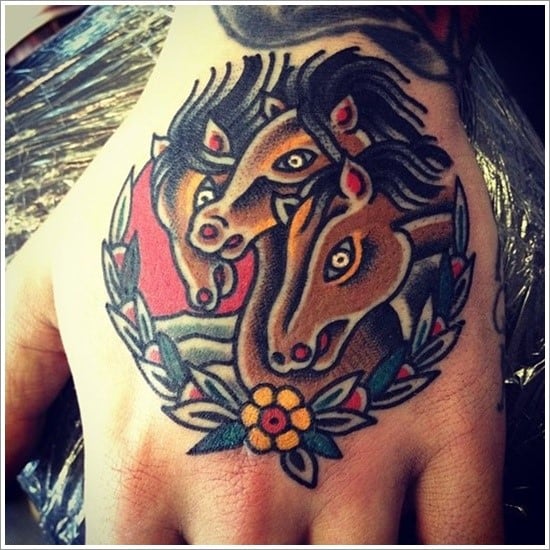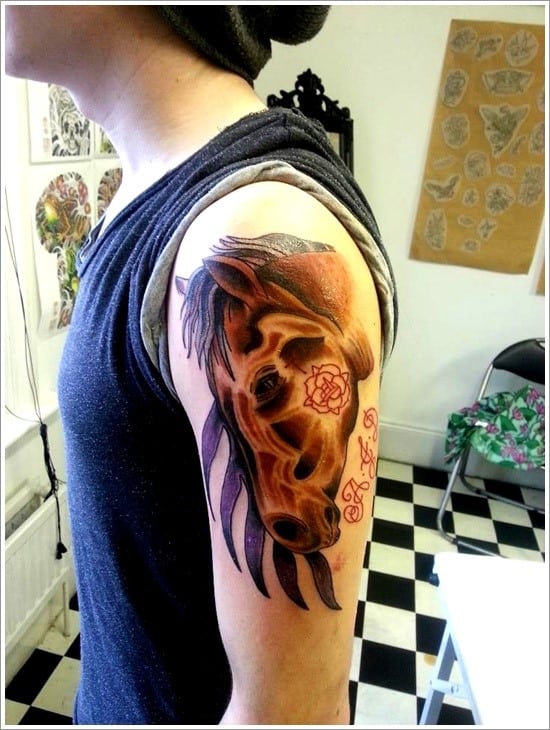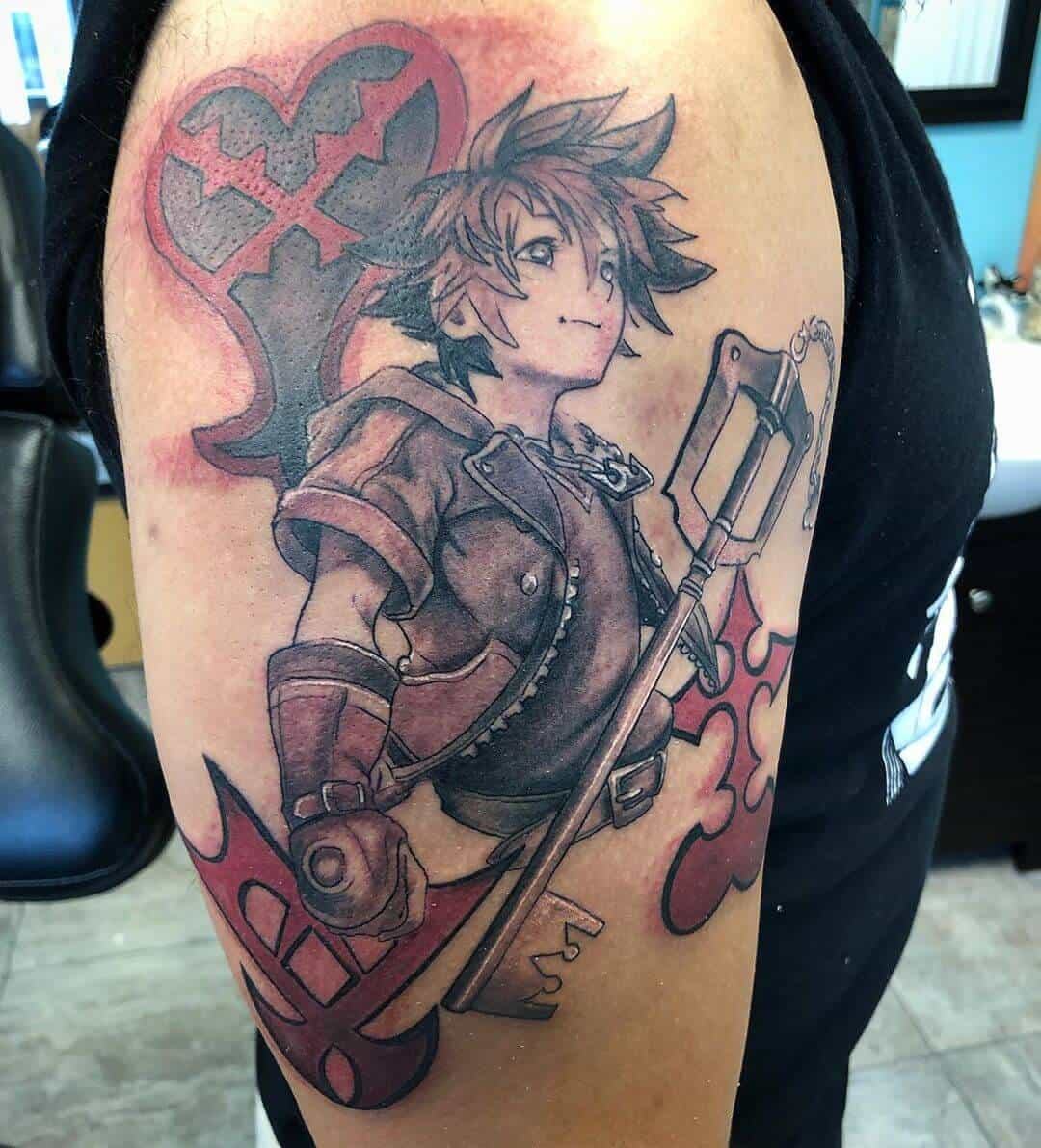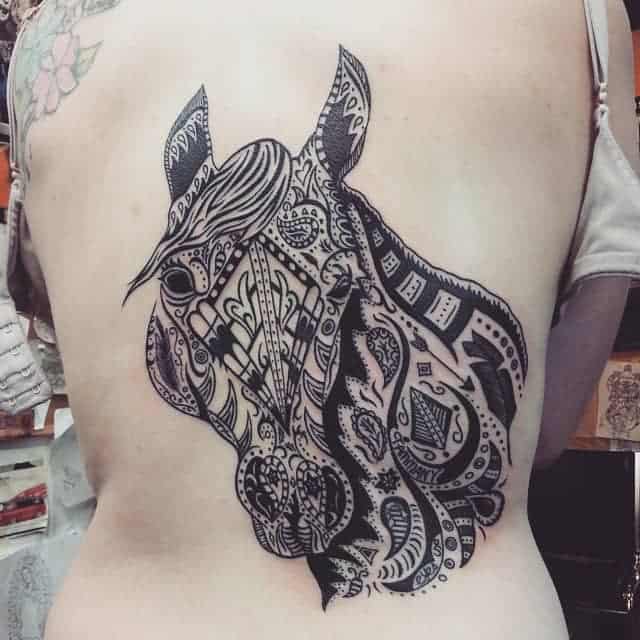
While horse tattoos often indicate a person’s love for horses and the unbreakable bond between rider and steed, they also have a deeper meaning.
The horse symbolizes freedom, courage, nobleness, heroism, spirit, and success in many ancient and modern cultures. Whether Christian, Muslim, Buddhist, or Hindu, you won’t miss a mention of horses in religious texts.
Horse tattoos are prevalent in Western society because the horse is a majestic and free-spirited animal, representing freedom and an ability to move through situations gracefully.
But what does the horse symbolize in different cultures, and what are the meanings behind horse tattoos?
We reveal all down below. You can also see some amazing examples of horse tattoo designs!

Horse Symbolism in Different Cultures
Humans first domesticated horses on the grasslands of modern-day Ukraine 6,000 years ago, so they are a symbol of many ancient cultures.
The horse is the universal symbol of freedom. Watching wild horses roam is one of life’s greatest pleasures, with their elegant stride and playfulness instilling a sense of happiness and free-spiritedness into one’s soul.
Owning and riding a horse is equally pleasurable, with these intelligent, emotional animals providing immeasurable satisfaction.
Arguably, no other animal contributed more to the spread of civilization. From transport to pulling power, horses played a critical role in shaping the world, so it makes no wonder they are important to many different cultures.
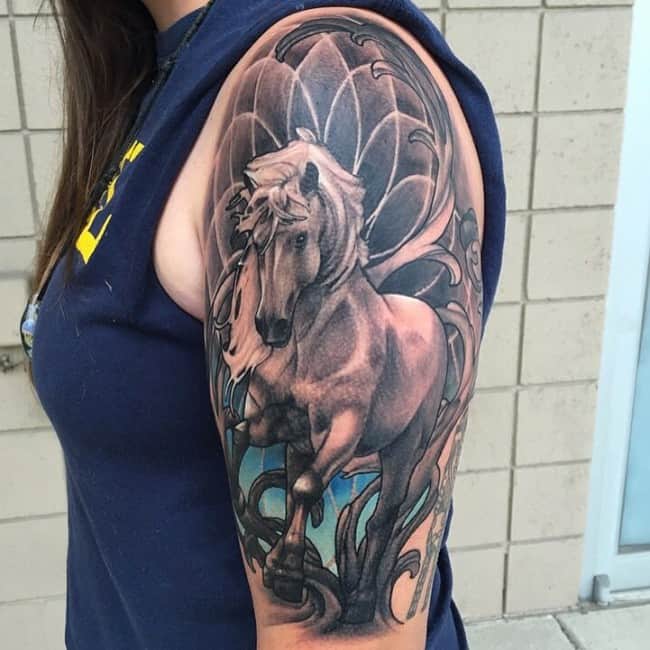
Western culture
Western society has a deep connection to horses due to their role in the buildout of infrastructure and the world around us. However, they are not a symbol of utility but one of endurance, confidence, and independence.
Horses are also symbols of power and war. Images of horses running through the flames and smoke of battlefields evoke a sense of bravery, backed by legendary horses like Warrior, the horse of Captain Jack Seely during the First World War.
Horse racing has also produced legendary steeds, such as Seabiscuit, a champion racehorse of the 1930s with a motion picture.
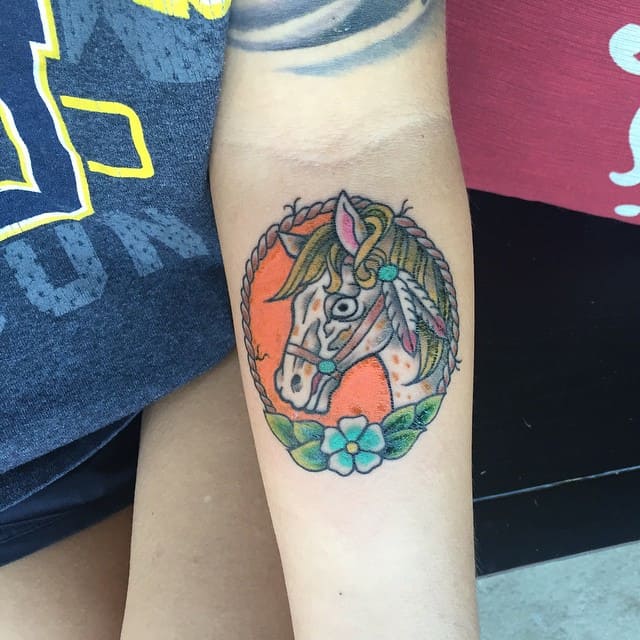
Native American culture
The Native Americans view the horse as a spiritual being worthy of deep respect and preservation. Tribes would use horses to hunt and fight, and they were a primary symbol of wealth, status, and the tribe’s strength.
European explorers introduced domesticated horses to Native American tribes, and they forever changed the landscape because hunters could travel the plains safely and hunt efficiently, using tactics based on speed.
Horses became integral to tribal culture, honored in totems, stories, songs, ceremonies, and artwork – and no finer legacy still exists today.
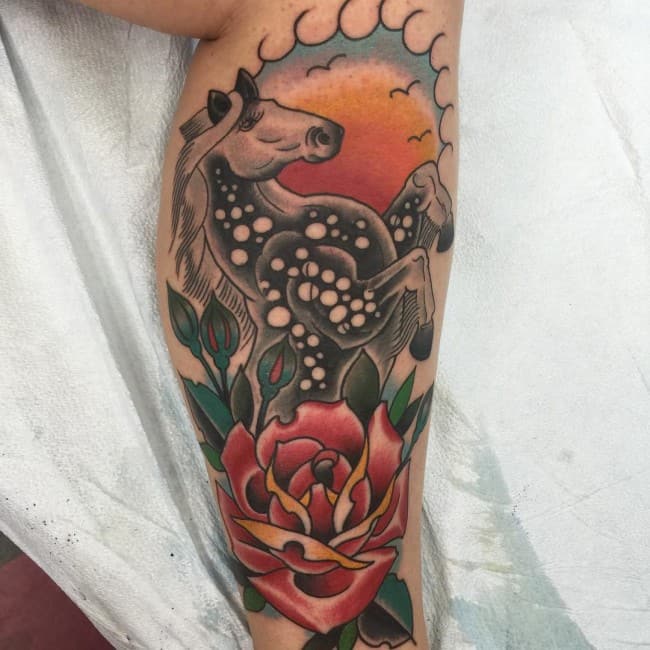
Eastern culture
From antiquity, the Japanese worshipped the horse as a god, believing that the divine spirit appeared on horseback. Japan domesticated horses as early as the 4th century, and they feature prominently in legends such as those of the mounted samurai.
In China, the year of the horse marks people who are high-spirited and energetic, with cheerful personalities. The horse symbolizes pure strength, speed, and perseverance in Chinese culture.
Ancient Koreans believed the horse delivered spirits of the dead and were messengers of spirits. Chollima, a mythical horse in Korean and Chinese culture, symbolizes ungodly speed and elegance and is a symbol of the Korean Chollima movement.
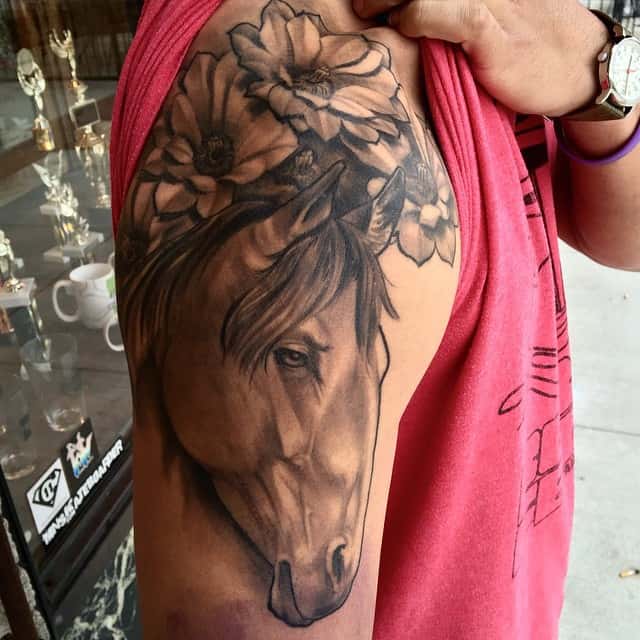
Horses in religions
In Christianity, The Book of Revelations has four horsemen. A pale horse represents famine, while a white horse symbolizes death.
White horses also appear in Hindu text, representing the sun. Surya, the solar deity, has seven horses for the seven colors of visible light and seven weekdays.
In Islam, horses are religious sentiments of the military victories of Muhammad, who took trips on a winged pony-horse-mule creature called Buraq.
In Buddhism, the horse symbolizes energy and loyalty. In ancient texts, the wind horse symbolizes the human soul and the bearer of good fortune.
Many more ancient religions mention horses as deities, such as Shango, the mounted god of thunder of the Yoruba religion.
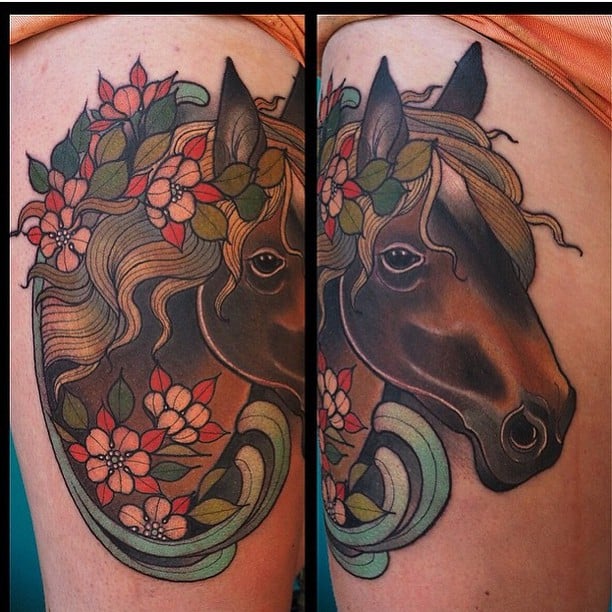
Horse Tattoo Meanings
A religious person might have a horse tattoo as a symbol of their faith, while a horse rider might have one to remember their faithful steed.
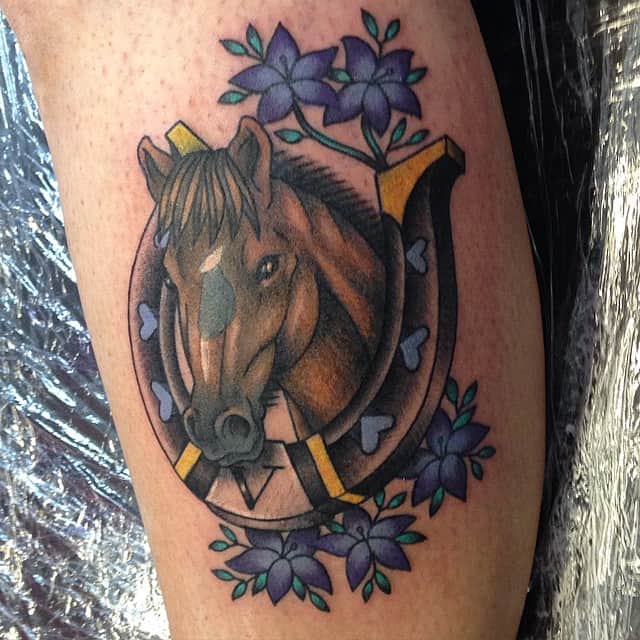
Flying and winged horse tattoos
Flying and winged horses are usually a nod to religion. Pegasus from Ancient Greece is the most famous example, and the Valkyrie of Norse legend also rode winged horses. In Hinduism, Kalki has a winged flying white horse called Devadatta.
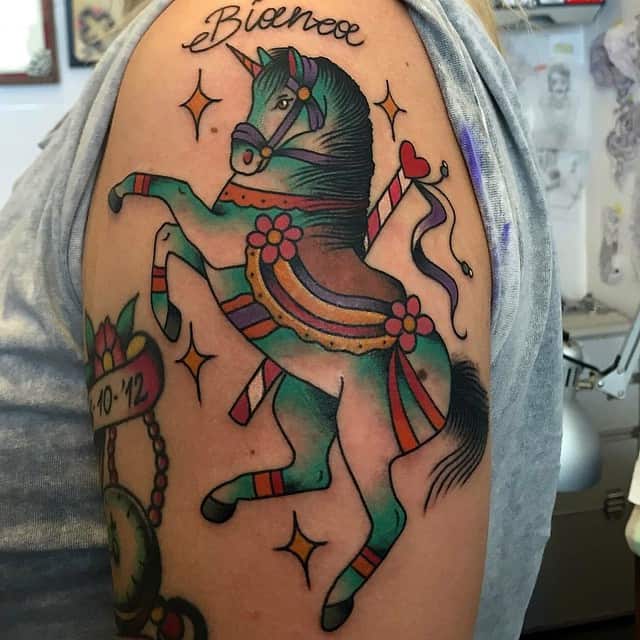
Celtic horse tattoos
The Celtic people view horses as status symbols, admiring their beauty, strength, and elegance. Celtic horse tattoos symbolize power, goodness, purity, and victory, making them a popular theme for military tattoos.
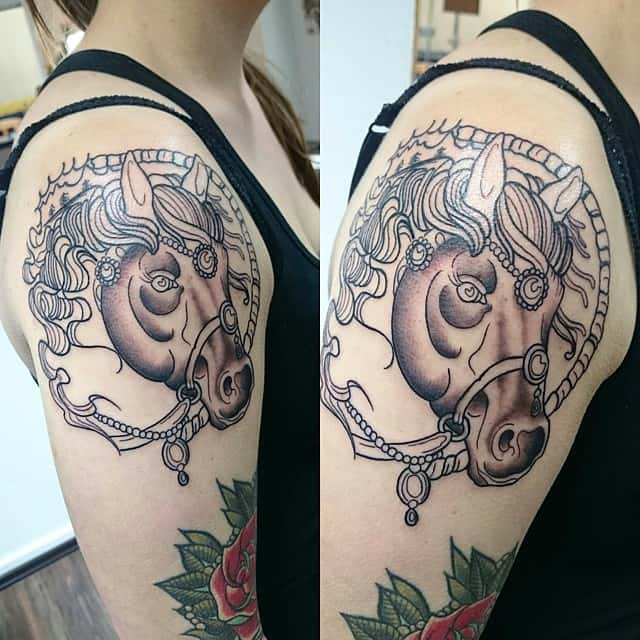
Tribal horse tattoos
Tribal horse tattoos are popular with indigenous and native peoples, especially those of North America, Australia, and New Zealand. The horse symbolizes freedom and strength, while the tribal style is authentic to tribal art.
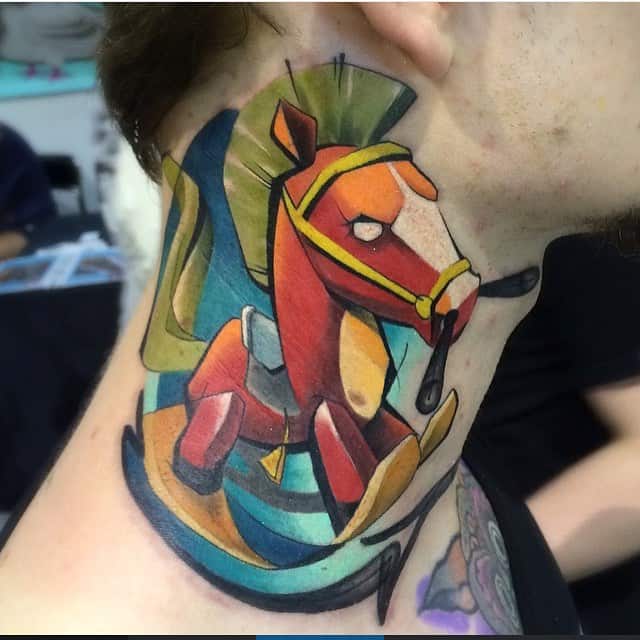
Horseshoe tattoos
Horseshoe tattoos have a horse’s head inside a horseshoe, symbolizing prosperity, luck, and good fortune in Eastern cultures. The horseshoe can point up or downwards depending on the culture but is viewed as bad luck in some orientations.
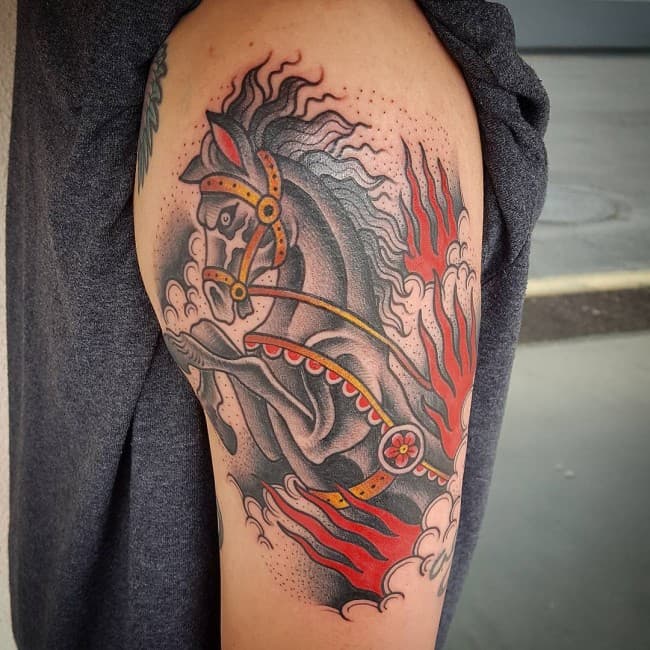
Horse herd tattoos
Horse herd tattoos symbolize family life, representing love, freedom, purity, and expression. One horse per family member is the usual theme, although some prefer having more horses to include friends.
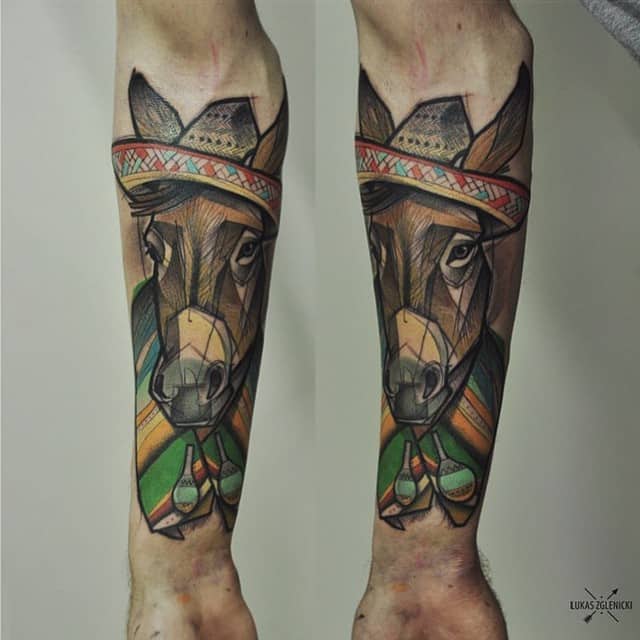
Flaming horse tattoo
A flaming horse tattoo represents the untamable nature of the beast, symbolizing primal wildness, immense power, and a deep sense of freedom. It can also represent a change in fortune or an important change in one’s life.
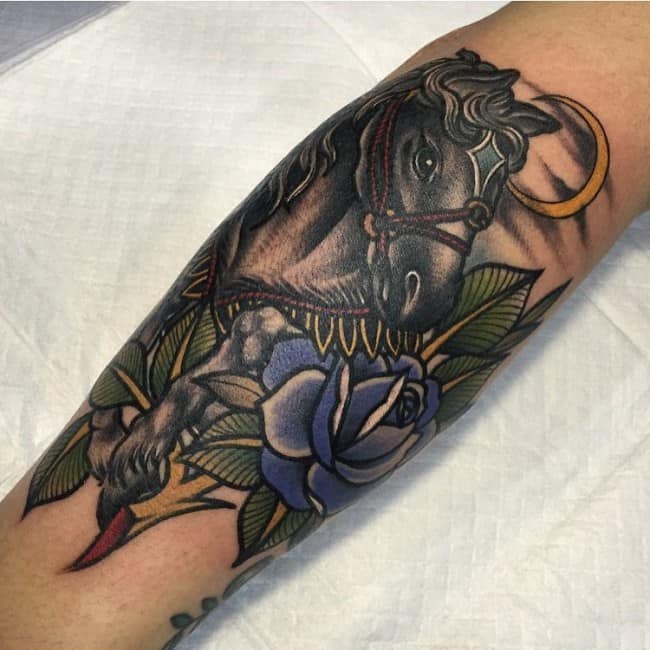
Is a horse tattoo right for you?
There doesn’t need to be deep meaning behind a horse tattoo – admiring the animal is enough reason to get one. However, consider how a horse might represent you and your life if you want your tattoo to be personal.
Is the horse your spirit animal, or did you have a horse when you were younger? Is the horse symbolic of your ancestry or culture?
These are excellent reasons to get a horse tattoo, or the horse might just be your favorite animal. Horse tattoos are personal and subjective, and there are no hard and fast rules about what they must mean or look like.
